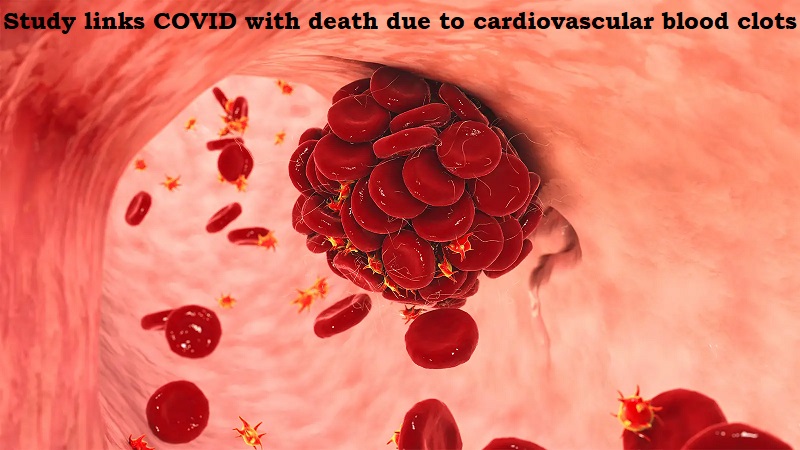
The mystery surrounding COVID is furthered by the discovery in a recent study that individuals with COVID who are not hospitalised have a significantly increased risk of dying from cardiovascular blood clots.
The research study, which was based on data from two COVID waves, was published in the journal Heart, on October 24. For this study, researchers at Queen Mary University of London tracked 54,000 participants for more than four months.
According to the study, COVID patients who were not hospitalised had a higher risk of developing the potentially fatal clots known as venous thromboembolisms. Blood clots in the veins can cause venous thromboembolisms. It is a significant issue that can result in both death and disability.
There are two types of venous thromboembolisms: deep vein thrombosis where there is a deep clot in the leg and pulmonary embolism where a deep vein thrombosis clot breaks and travels to the lungs where it subsequently blocks a blood supply.
As per the researchers, non-hospitalized COVID patients had a 10 times higher mortality rate than people who had not contracted the illness. The danger was at its maximum in the first 30 days after the onset of the illness, but it may continue to be high for longer.
However, the hazards were much higher for COVID patients who were hospitalised. These patients had a 28 times increased risk of venous thromboembolism, a 22 times increased risk of heart failure, and an 18 times increased risk of stroke compared to unaffected individuals. According to Bloomberg, which used the study report as evidence, their risk of passing away was 118 times more than that of their uninfected counterparts.
There are a number of other risk factors for venous thromboembolism now that we are aware that COVID is a larger risk factor. The triggers include old age, obesity, cancer, surgery, immobility, and hospitalisation.
In addition to these variables, individuals with thicker blood are more susceptible to blood clots because their bone marrow overproduces blood cells.

Post Your Comments